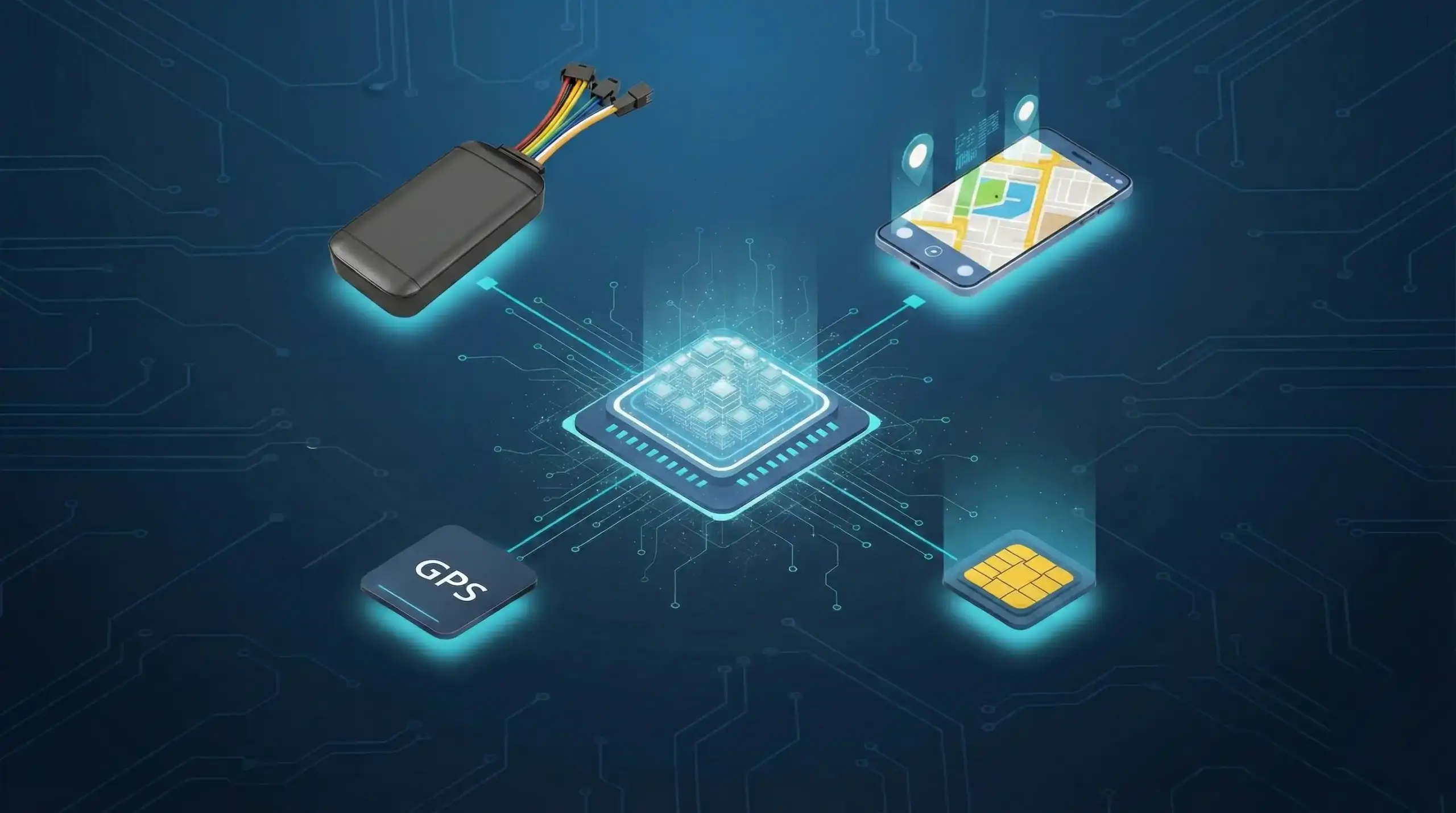Understanding Fleet Telematics Technology
Fleet telematics technology encompasses an advanced system designed to monitor and manage vehicle efficiency and effectiveness through information collection and evaluation. Em seu núcleo, fleet telematics integrates several crucial elements, consisting of GPS monitoring systems, Diagnóstico do veículo, and real-time information transmission that can also car trace movements. These aspects jointly facilitate extensive vehicle monitoring, significantly improving the real-world impact of fleet monitoring on overall procedures.
GPS monitoring functions as the foundation of telematics, enabling fleet supervisors to identify the exact place of vehicles at any provided minute. This real-time place information supports effective path optimization, enabling drivers to take one of the most efficient courses and decreasing fuel consumption and travel time. Além disso, telematics systems often integrate vehicle diagnostics that monitor the health and wellness and efficiency of each vehicle, notifying drivers to potential upkeep problems before they lead to expensive break downs. The integration of a gps tracking chip into fleet vehicles ensures accurate and continuous location data.
The transmission of real-time information provides another critical advancement in fleet management. Para circunstâncias, systems such as the Protrack GPS monitoring system offer extensive information understandings, equipping supervisors to create informed choices based upon accurate metrics. By utilizing this information, companies can determine patterns in vehicle use, improve procedures, and improve responsibility amongst drivers and management alike, and even track stolen car situations with greater ease.
Hoje, various kinds of telematics systems are available in the marketplace, varying from basic monitoring solutions to advanced analytics systems that include a broad array of performances. These systems not just provide crucial information but also incorporate perfectly with wider fleet management strategies. By adopting such devices, companies can recognize lower insurance costs as they show improved safety and functional efficiency. Como resultado, the fostering of fleet telematics technology is progressively recognized as an important step towards modernizing fleet procedures and improving overall responsibility.
The Role of Telematics in Improving Responsibility
Fleet telematics technology plays a critical role in improving responsibility amongst drivers and fleet management. By leveraging advanced vehicle monitoring systems, such as the Protrack GPS tracker and the Protrack GPS monitoring system, fleet supervisors can monitor real-time information relates to vehicle locations, Hábitos do motorista, e eficiência geral da frota. This capability enables companies to implement strategies that advertise accountable driving practices, thereby fostering responsibility throughout the company, and also helps to track stolen car assets.
One essential feature of fleet telematics is chauffeur habits monitoring. This aspect allows fleet supervisors to track various metrics, como velocidade, aceleração, Padrões de parada, e tempo ocioso. By evaluating these metrics, supervisors can determine drivers that may be participating in hazardous behaviors, thus enabling them to address these problems quickly. Para circunstâncias, if a chauffeur regularly exceeds speed limits or accelerates too suddenly, the telematics system can alert management, which can after that schedule appropriate educating or restorative activities. Such methods help ensure that drivers follow company plans and safety requirements, eventually contributing to a more responsible fleet, complete with a **gps tracking chip** for precise data collection.
Another crucial aspect of fleet telematics is path optimization. Utilizando informações em tempo real, companies can plan one of the most efficient routes for their vehicles, decreasing fuel consumption and travel time. This not just reduces functional costs but also highlights responsibility by encouraging drivers to follow designated routes. Além disso, telematics systems can inform drivers of any discrepancies from planned routes, ensuring that they remain on job, and also support effective **car trace** capabilities. Scheduled upkeep monitoring is one more critical feature, as it allows fleet supervisors to monitor vehicle health and wellness and schedule prompt upkeep. Precautionary upkeep plays a key role in preventing break downs, further ensuring that drivers can satisfy their dedications without unneeded interruptions.
By incorporating these features, fleet telematics technology not just supports operational effectiveness but also improves the real-world impact of fleet monitoring on responsibility within the company, providing strong capabilities to track stolen car assets and enhance overall security.
Implementing Telemetry Solutions for Fleet Management
The application of telemetry solutions in fleet management stands for a considerable jump towards enhancing operational effectiveness. Para começar, choosing the right telematics provider is critical. Companies should carefully evaluate various options by considering factors such as the comprehensiveness of the fleet monitoring features, customer support reputation, and pricing frameworks. The ideal provider should offer a robust vehicle monitoring system, como o sistema de monitoramento de GPS do Salpack, that includes real-time information abilities to improve decision-making processes and provide a reliable **car trace** function.
Depois que um provedor de serviços é escolhido, the next step involves establishing the technology. This process typically involves installing GPS units within each vehicle and setting up the software component that will manage the information gathered. It is essential to involve staff in this process, ensuring that the technology is not just installed effectively but also customized to satisfy the unique needs of the fleet. Carrying out a comprehensive educating program for workers on how to take advantage of vehicle monitoring systems, including navigating the Protrack GPS tracker, can greatly improve the energy and eventually own down functional costs, relying on a robust gps tracking chip in each unit.
No entanto, the integration of telematics information into current systems positions challenges that fleets must browse. Para circunstâncias, aligning a fleet management system with current operational procedures can demand considerable modifications. Adicionalmente, companies must remain watchful about personal privacy regulations, ensuring that information collection techniques adhere to lawful requirements. Establishing a clear strategy for information management, including information security measures and stakeholder permission, is critical to prevent personal privacy violations, and ensures the ability to effectively **track stolen car** assets while maintaining data integrity.
Strategies such as piloting the telemetry service with a smaller sized section of the fleet can provide understandings into potential challenges and modification needs before full-scale application. This step not just eases the shift but also ensures a more informed approach to incorporating real-time information into daily procedures. By effectively addressing these aspects, fleets can harness the real-world impact of fleet monitoring technologies, prominent to benefits such as lower insurance costs and efficient path optimization.
Estudos da situação: Success Tales in Responsibility through Telematics
In today’s developing business landscape, effective fleet management has become a crucial factor for operational effectiveness. The real-world impact of fleet monitoring appears in varied markets, showcasing noteworthy improvements in responsibility and cost savings. This area highlights several situation studies that highlight the effectiveness of telematics technology in improving operational efficiency, including the ability to car trace vehicles with precision.
One noteworthy situation study involves a logistics company that executed the Protrack GPS monitoring system throughout its fleet. Before the application, the company faced considerable challenges, consisting of excessive fuel consumption and a high mishap rate. After releasing vehicle monitoring systems, the company observed an amazing 20% decrease in fuel costs within 6 meses, attributed to path optimization strategies owned by real-time information analytics. With better exposure into chauffeur behaviors, the fleet supervisor could strengthen safe driving methods, levando a um 35% decrease in accidents. The monetary ramification is considerable, as the decrease in events straight contributed to lower insurance costs, further improving fleet success, and increasing the ability to track stolen car assets.
Another instance can be attracted from a energy provider that adopted telematics to improve their area procedures. Formerly dependent on manual logs, the company battled with responsibility in terms of vehicle use and upkeep routines. After integrating Protrack GPS tracker technology, they not just achieved a more methodical way to supervise their fleet but also saw an increase in labor force efficiency. The data gathered, often thanks to an integrated gps tracking chip, enabled prompt vehicle upkeep, eventually decreasing break downs and associated repair costs by approximately 30%. This positive approach established a culture of responsibility amongst drivers, showcasing how technology can change traditional management methods.
These situation studies reflect the practical applications of fleet telematics and their capability to deliver concrete outcomes. By buying real-time monitoring solutions, companies can’t just improve operational oversight but significantly decrease costs associated with ineffective methods. The journey towards improved responsibility through telematics appears, encouraging future fostering throughout various industries, and provides strong tools for a reliable car trace system.









